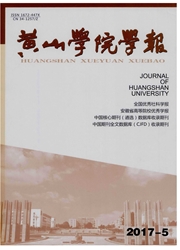

 中文摘要:
中文摘要:
In the analysis of quantum discord, the minimization of average entropy traditionally involved over orthogonal projective measurements may be attained at more optimal decompositions by using the positive-operator-valued measure(POVM)measurements. Taking advantage of the quantum steering ellipsoid in combination with three-element POVM optimization,we show that, for a family of two-qubit X states locally interacting with Markovian non-dissipative environments, the decay rates of quantum discord show smooth dynamical evolutions without any sudden change. This is in contrast to two-element orthogonal projective measurements, in which case the sudden change of the decay rates of quantum and classical decoherences may be a common phenomenon. Notwithstanding this, we find that a subset of X states(including the Bell diagonal states) involving POVM optimization can still preserve the sudden change character as usual.
 英文摘要:
英文摘要:
In the analysis of quantum discord, the minimization of average entropy traditionally involved over orthogonal projective measurements may be attained at more optimal decompositions by using the positive-operator-valued measure(POVM)measurements. Taking advantage of the quantum steering ellipsoid in combination with three-element POVM optimization,we show that, for a family of two-qubit X states locally interacting with Markovian non-dissipative environments, the decay rates of quantum discord show smooth dynamical evolutions without any sudden change. This is in contrast to two-element orthogonal projective measurements, in which case the sudden change of the decay rates of quantum and classical decoherences may be a common phenomenon. Notwithstanding this, we find that a subset of X states(including the Bell diagonal states) involving POVM optimization can still preserve the sudden change character as usual.
 同期刊论文项目
同期刊论文项目
 同项目期刊论文
同项目期刊论文
 期刊信息
期刊信息
